Description
ABSTRACT
Issues in Corporate Litigation in Nigeria
Gogo Otuturu*
It is a fundamental principle of corporate law that from the date of incorporation, a company becomes a separate legal person distinct from the subscribers and the members. One of the incidents of this concept of corporate personality is that the company can sue and be sued in its corporate name. This paper examines the proper plaintiff principle in corporate litigation and the various types of suits by shareholders as well as the procedural requirements for instituting such suits. It also examines the various theories of corporate liability and the range of remedies that can be obtained against a company. It offers suggestions for reform in line with the position in England and the United States of America.
INTRODUCTION
The most fundamental consequence of incorporation of a company is that from the date of incorporation mentioned in the certificate of incorporation,1 the subscribers of the company together with such other persons as may, from time to time, become members of the company, shall be a body corporate by the name mentioned in the memorandum.2 This concept of corporate personality (or separate legal personality of a registered company) has long been established in the case of Salomon v Salomon & Co. Ltd3 where Lord MacNaghten said, “The company is at law a different person altogether from the subscribers to the memorandum”.4 As a separate legal person, a company can sue and be sued in its corporate name. This means that only the company and not the individual members can sue to enforce the company’s rights.5 This is known as the proper plaintiff principle. It also means that only the company, not the members, can be sued for its debts and other liabilities.
This paper examines some fundamental issues in corporate litigation in Nigeria. It examines the proper plaintiff principle and the different types of suits by shareholders and the procedural requirements for instituting such suits under the Companies and Allied Matters Act.6 It also examines the various theories under which a company may be held civilly and criminally liable for the acts of its organs, officers and servants. It further examines the various remedies that can be obtained against a company and offers suggestions for reform in line with the position in England and the United States.
CONCEPT OF CORPORATE LITIGATION
Henry Campbell Black defines the word “corporate” as belonging to a corporation; as a corporate name.7 In the same vein, he defines “litigation” as a lawsuit; legal action, including all proceedings
* LL.M, BL, CBA, ACIArb. Principal Partner, Crown Chambers and Lecturer, Faculty of Law, Niger Delta University, Wilberforce Island, Bayelsa State.
- See Emenite Ltd v Oleka (2005) 6 NWLR (Pt 921) 350 where it was held that the legal personality of a corporate body can only be established as a matter of law by the production of the certificate of incorporation
- See Companies and Allied Matters Act, CAP C20, LFN, 2004 (as amended by the Investment and Securities Act 2007), s. 37
- (1897) AC 22
- ibid 51
- J.O. Orojo, Company Law and Practice in Nigeria (5th edn, Durban: LexisNexis, Butterworths 2008) 84-86
- CAP C20, LFN, 2004 as amended (hereinafter referred to as ‘CAMA’)
- C.H. Black, Black’s Law Dictionary (6th edn, St. Paul, Minnesota: West Publishing Co., 1990) 337 129

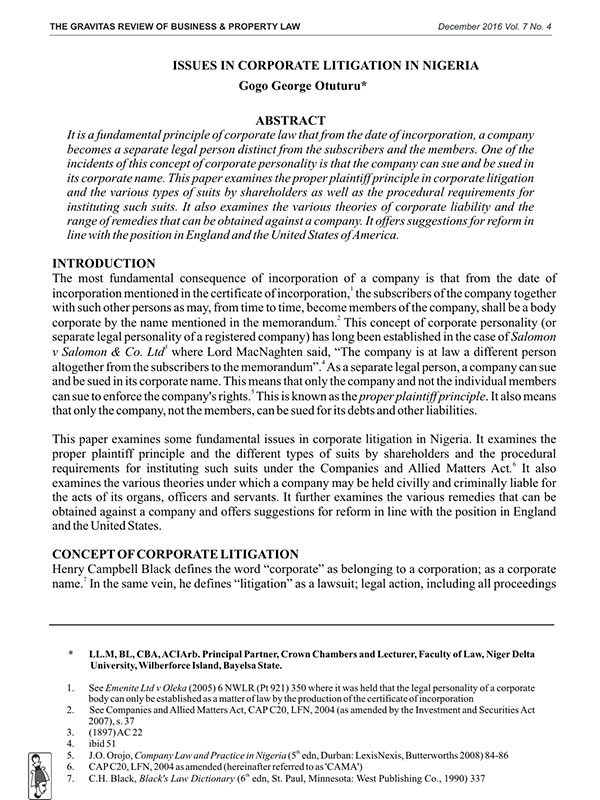
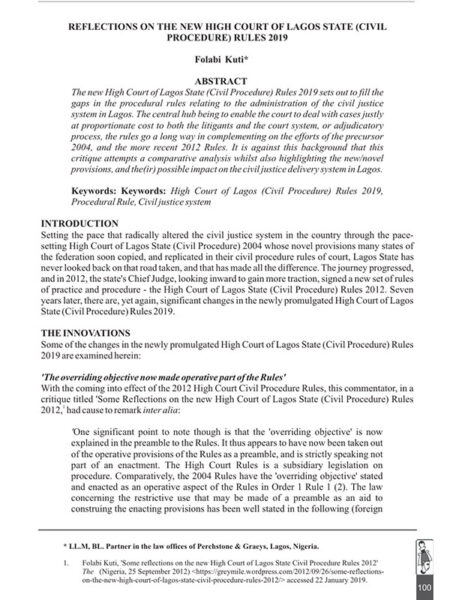
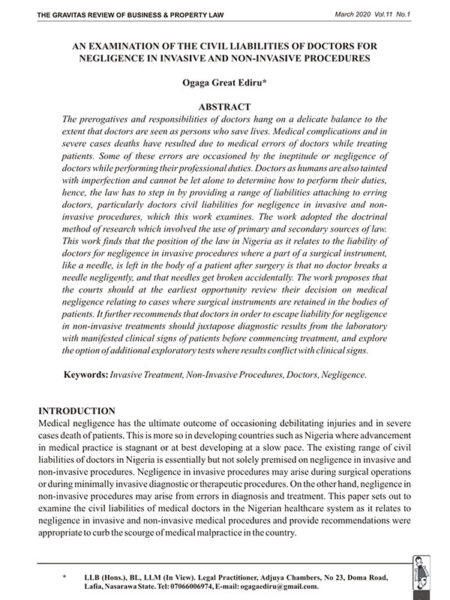
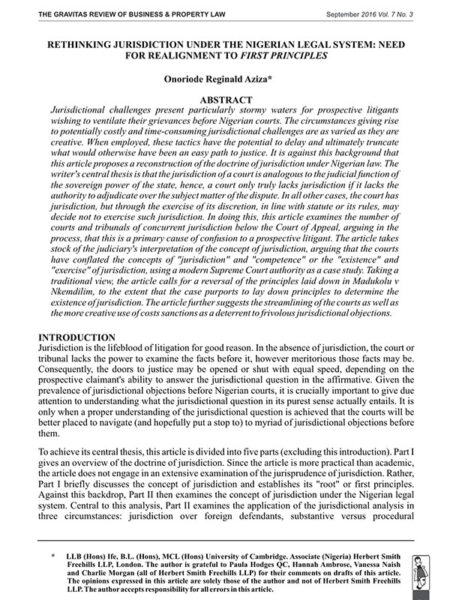
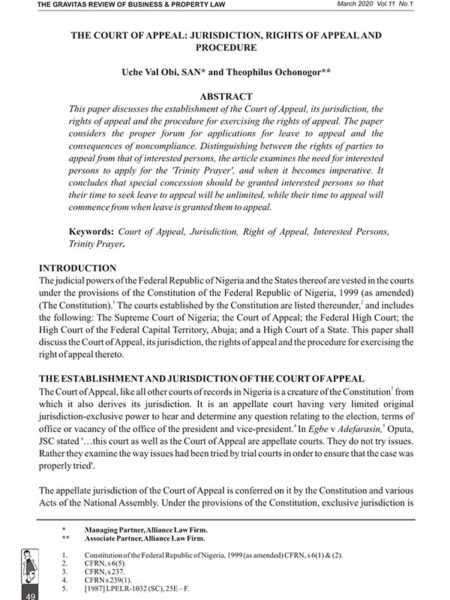


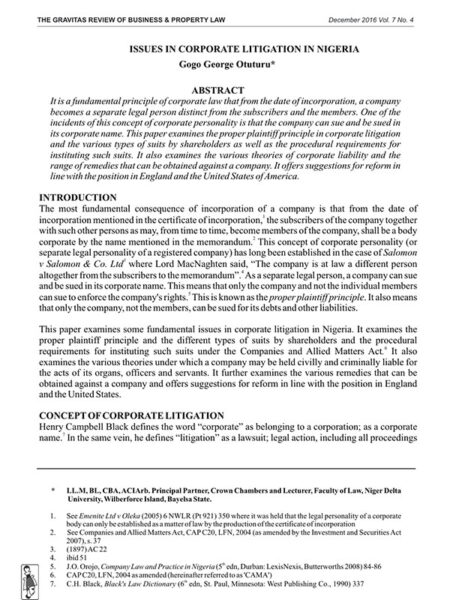
Reviews
There are no reviews yet.